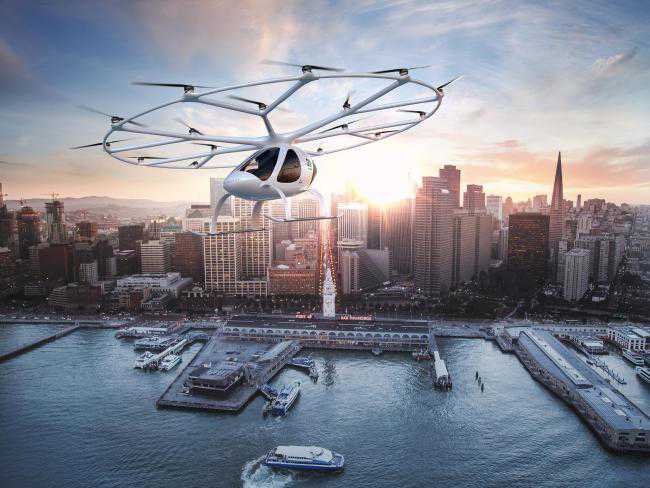‘The best flight I’ve ever had’
18 January, 2018

“THAT was fantastic, the best flight I have ever had. Everybody will fly one of these someday.”
This high praise comes from computer giant Intel’s CEO Brian Krzanich after hopping on board a new aircraft with a difference, called the Volocopter.
The unique-looking aircraft is one of the world’s first passenger drones to take to the skies. It can be operated by a pilot or fly on its own, has a joystick and runs completely on electricity.
The immediate benefits of the Volocopter are striking: Bye-bye turbulence, annoying fellow flyers and airport queues. Hello to a whole new way of travelling.
So how does it combat the effect of turbulence? According to its designers: “Volocopter leverages Intel technology … (and) the smooth flight is enabled by dozens of microprocessors monitoring the environment for turbulence, winds, etc. and sending signals in milliseconds to the rotors.
“These can react and perform the slightest adjustments instantly (using) their battery-powered electric motors.”
The Volocopter, which has 18 rotors and more than 100 microprocessors, is built to stay in the air if faced with multiple failures.
“In a traditional helicopter, if one single component along the entire drivetrain fails, you are in deep trouble,” Volocopter CEO Florian Reuter, who is in partnership with Intel, told The Verge.
“We’ve pretty much traded in the entire mechanical complexity of today’s helicopters for electronic complexity, which is far more lightweight, far more powerful, and far cheaper today. And we think this vehicle can be constructed in a way that is as safe as a commercial airliner, which is where it needs to be in order to be applied at scale in megacities across the world.”
It’s also very quiet, a lot quiet than standard helicopters.
The Volocopter has undergone many test flights in Dubai — where it’s hoped that it will be part of a commercial pilot program in the early 2020s. It also has a permit to fly in Germany.
It made its first flight inside an exhibition hall in Germany last month, and just last week Intel ended its keynote address at the Consumer Electronics Show in Las Vegas by flying the aircraft across the stage.
Supposedly, passengers will be able to fly on the quirky drones in just a few years time.
The downside? Unfortunately, it’s only able to fly for half an hour so far, or for just 27km — at a speed of 50km/h — so it’s only for short trips. It’s hoped the technology will soon improve to allow longer flights.
